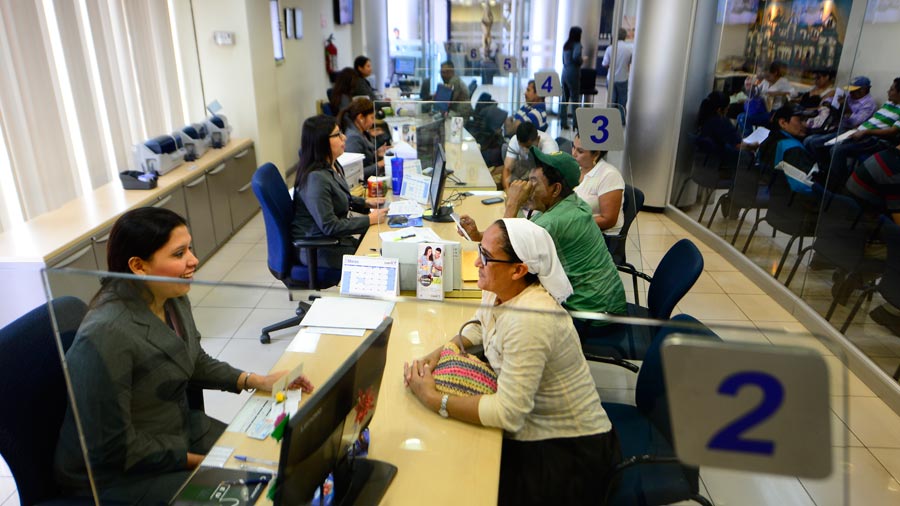
The alarms have been lit after the Treasury’s announcement of an agreement with the IMF. Delegates will pursue short-term reforms to improve savings profitability.
It is making noise among the opposition that Treasury Secretary Alejandro Zelaya is talking about extensive reforms to the pension system amid government talks with the International Monetary Fund (IMF) to secure funding for about $ 1,300 million that would serve “as the golden opportunity ”to revive the economy, the official announced in an interview with Reuters a few days ago.
According to deputies Víctor Hugo Suazo, of the FMLN and Rodrigo Ávila, of ARENA, Zelaya’s announcement appears to be a ‘rescue’ that the executive is seeking in the face of the ‘illiquidity’ facing the treasury as a result of the ‘wastage’. ‘of the state. money, loans and bonds used last year arguing to attend the emergency derived from COVID-19.
“I am concerned that the government is announcing a pension reform under the agreement with the IMF for a tax package. Its interest is fiscal, ”Suazo confirmed.
You may be interested: Chamber orders the Ministry of Finance to suspend requirements against El Faro newspaper
When dealing with money approved by the General Assembly for the pandemic emergency, there are “anomalies” in more than $ 670 million that went to the Emergency Fund for Disaster Prevention and Mitigation (Fopromid), under the of the Ministry of Government, according to the analysis carried out by the Special Committee of the Assembly investigating the use of public funds for the pandemic, based on the latest report received from the monitoring committee of said funds.
Reuters stressed in its news that Zelaya wants the IMF to approve the government’s credit limit to be extended to 36 months, similar to the program announced for Costa Rica this week.
“It (the funding) is going to help us close the budget deficits of the years 2021, 2022 and 2023,” explains Zelaya, explaining that this will help reduce the high costs associated with the national debt.
“ I am concerned that the government is talking about pensions here because everyone knows that the government will have a situation of illiquidity, because of the debt it has been in, now it is not going to be the government wanting to dive into savings. of contributors, that would be disastrous because everyone has their own account and that should be respected, ”said Ávila.
According to Zelaya, the reform proposal they propose to promote is based on three pillars: “that it benefits the contributor in the first place, something that has never been done; in the second moment to the state and in the third moment to the actors who manage the pension funds ”.
The last pension system reforms approved by the Assembly were in 2017. At that time, Ávila and Suazo explained, it was possible to improve pension profitability from 1% to 4%, and gradually it should increase to 5.8%. %. They also managed to earn retirement for life by establishing a Solidarity Guarantee Fund.
Spurred on by the independent deputy, Francisco Zablah, of 25 initiatives currently under consideration in the ad hoc pension reform committee, the Assembly endorsed that contributors at the time of retirement will not be required to repay the 25% advance they have requested to the AFPs and that their pension is calculated on the basis of the remaining balance; the convenience of applying for their savings in case of terminal illness and not giving up nationality for Salvadorans living abroad to qualify for the balance of their savings.
Also read: Hacienda still says it has no money for FODES
In the remainder of the current term, Suazo sees it possible to make other specific changes in the short term, but it is unlikely that locks will be installed so that the government cannot use the workers’ savings; while Zablah blames the committee’s work being halted due to “lack of will and quorum” to meet.
Ávila explained that the only way to reform the pension law would be to reduce the 40% available to the government to borrow money from savings, but believes the problem is not whether it is a public or private system , but that there are competitive rates. that arouse good interest in employees.
But he warns that there is a “threat” from the government’s talks with the IMF. “Because they are going to pay the pensions, that is very dangerous, this government has become illiquid, because they have spent money in an unbridled way, they have wasted resources, they have used all the power of the state for propaganda issues,” complained. Ávila.
Suazo said the FMLN is seeking to reduce the commission charged by the AFPs in the short term. He added that in the reforms proposed by the Treasury, the solution is not that it is a public or private entity, but that the savings administration entity is mainly run by employees and retirees.